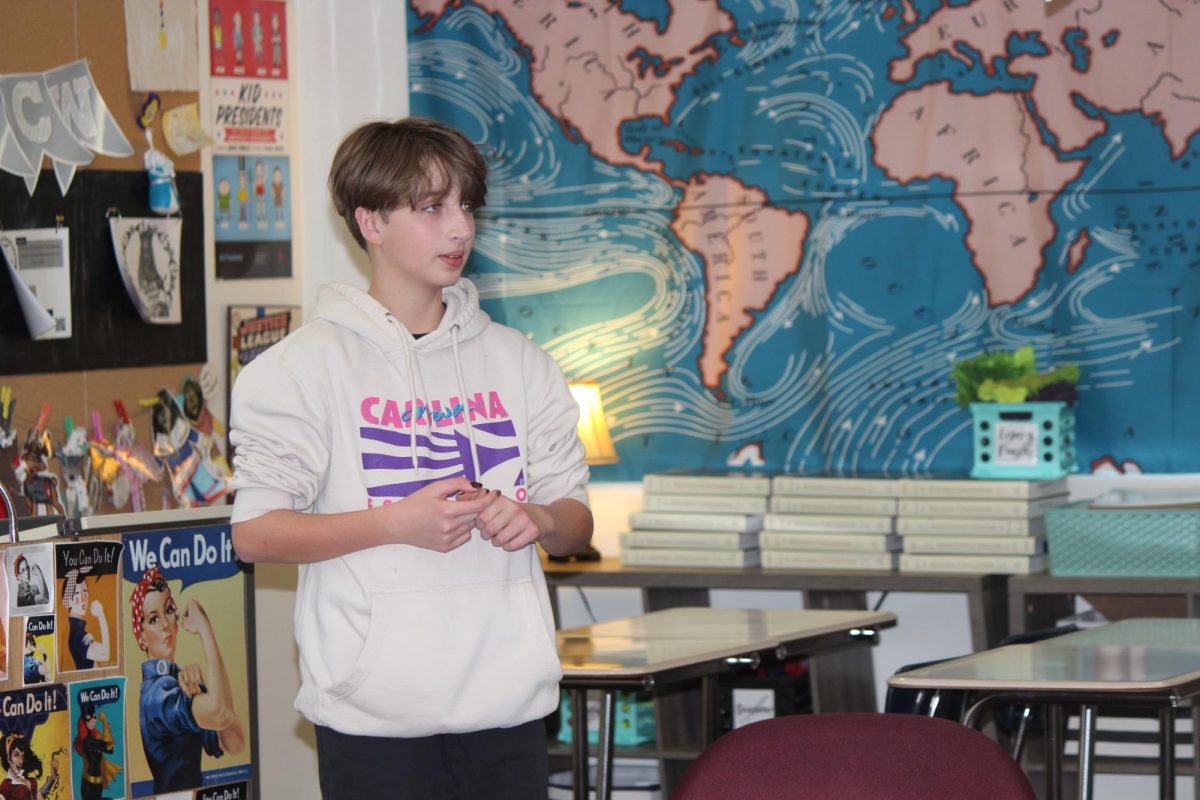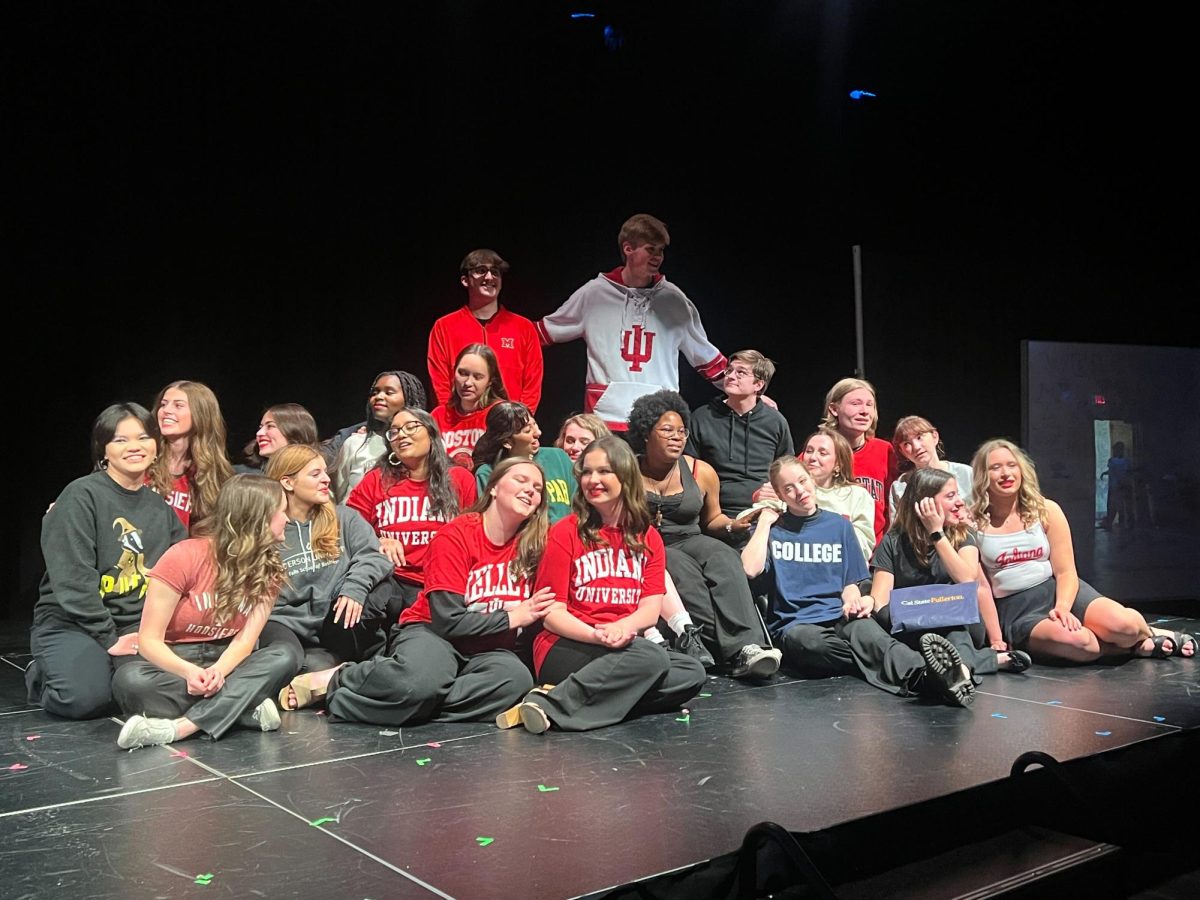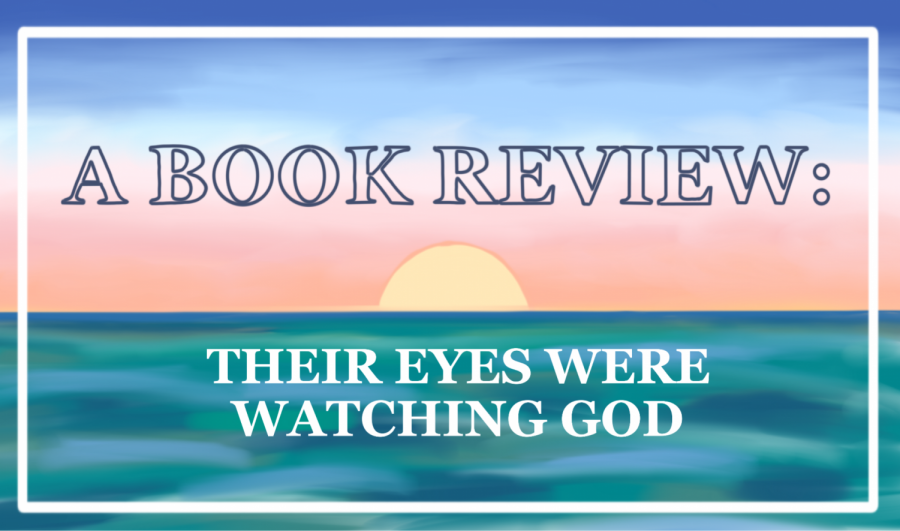I recently finished reading Their Eyes Were Watching God by Zora Neale Hurston, and I just had to write a review. The book reads exactly like the type of literary classic you would read in school, except that it’s written by an African American author and features an entirely African American cast. (Not to be cynical, but I literally cannot remember a single school-required book that wasn’t written by a white author or even had a non-white main character…)
Set in early 1900s Florida, the novel follows Janie Crawford’s journey into and as a woman. Although Janie is a naturally strong and engaging character, she continually finds herself wrapped up in situations—or perhaps more accurately, relationships—that stifle her ability to act and grow. It’s interesting to note that Janie’s life has several parallels with Hurston’s; Hurston herself even acknowledged that the relationship between Janie and Tea Cake was inspired by a similar experience in her own life. As a result, I think that the novel provides a startlingly personal view into the life of an African American woman in the early 20th century, almost reading like a daily journal—but much more literary.
In fact, Hurston’s prose is absolutely exquisite and one of my favorite aspects of the novel; I don’t think I’ve ever read descriptions like the ones she wrote, and I’m not sure I ever will. She is excellent at making lyrical and, perhaps most importantly, distinctive comparisons. For just a few examples:
“Ships at a distance have every man’s wish on board.”
“She knew the world was a stallion rolling in the blue pasture of ether.”
“Even before the sun gave light, dead day was creeping from bush to bush watching man.”
“She pulled in her horizon like a great fish-net.”
Yet not only are the descriptions extremely beautiful and fun to read, but Hurston also writes her dialogue in dialect, providing a contrasting sort of colloquial, comfortable feeling to her characters. I read in the afterword of the novel that this discrepancy between the dialogue and the prose may actually suggest a sort of “double consciousness,” a phrase first coined by W.E.B. Du Bois, proposing the idea that Janie essentially has to grapple with her perspective as an African American compared to the dominant white perspective, on top of balancing her perspective as a woman with the more societally-accepted patriarchal perspective at the time. I thought that was an incredibly interesting insight from the afterword, and although it may not necessarily be a deliberate choice by Hurston—after all, sometimes the red door is just a red door—it is certainly a thought-provoking idea nonetheless, and not just within the context of the novel.
Probably another one of my favorite parts is from near the end when Janie says, “Love is lak de sea. It’s uh movin’ thing, but still and all, it takes its shape from de shore it meets, and it’s different with every shore.” It reminded me of a poem I had just happened to read a couple of weeks ago, “The Sea,” by Dinos Christianopoulos (an alternate translation here). The poem starts off with the line, “The sea is like love,” and ends with the line, “Thousands enjoy it — one has to pay.” The entire poem, in fact, is very fitting in portraying the sentiments and plot points (particularly the climax and falling action) of Their Eyes Were Watching God; so fitting, in fact, that I wouldn’t be surprised if there was a deliberate allusion in there somewhere.
As that poem might have hinted, the relationships dabbling in love in this novel are really the core of the book, and they are romantic in a way that clutches onto emotion, with only glimpses of reason every so often. As the readers, we are privy to Janie’s thoughts and emotions; we are aware that she is aware her relationships are not always healthy or equal, yet she seems to accept that. Even her final relationship with Tea Cake, who is written as her true love, is not as innocent as it first appears.
Although Janie’s partners become progressively more respectful of her than the last, equality in a relationship is never achieved, and Janie seems to eventually deem complete equality as something that can’t be achieved—either blinded by her love for Tea Cake, or driven complacent by the tribulations she has undergone. I personally lean toward the latter explanation, especially as I don’t think that Janie is blind to the situation she is in; rather, her life simply reflects her circumstances. Janie seems to internalize the beliefs of her environment to a limited extent (perhaps the idea of “double consciousness” could be delved into deeper here), resigning herself to the idea that a quiet wife who let you hit her was the mark of a good wife. (Mrs. Turner is an even better example of another character who internalized the beliefs of her environment.) I think this was further perpetuated by the continual sexist and racist microaggressions—and sometimes just plain aggressions—that Janie faces, which are often not from strangers, but actually from the people closest to her. Thus, I think that although Janie is aware that the power imbalances she faces are not reasonable whatsoever, she doesn’t dare believe that idea at its fullest.
Revived as a staple from the Harlem Renaissance works, Their Eyes Were Watching God is a highly compelling read with its flowing prose and very human happenings. The charm in Their Eyes Were Watching God lies in that it doesn’t just provide the perspective of a Black woman in the American south, in the early 20th century—it does so through the meandering lens of everyday life.
On this blog, Shruthi Ravichandran and Grace Xu provide monthly curations of all types of arts and media, from TV shows to music to novels to even YouTubers. On top of mood-oriented playlists, there’s also the occasional rant-filled review. They hope readers will always leave with a new piece of media to muse over. Click here to read more from MUSE.





















































![Review: “Suits” is a perfect blend of legal drama and humor [MUSE]](https://hilite.org/wp-content/uploads/2024/04/unnamed-1.png)
![Chelsea Meng on her Instagram-run bracelet shop [Biz Buzz]](https://hilite.org/wp-content/uploads/2024/04/IMG_2446-1200x838.jpg)
![Review: Quiet on Set: The Dark Side of Kids TV is the long awaited exposé of pedophilia within the children’s entertainment industry [MUSE]](https://hilite.org/wp-content/uploads/2024/04/unnamed.jpg)
![Review: “The Iron Claw” cannot get enough praise [MUSE]](https://hilite.org/wp-content/uploads/2024/04/unnamed.png)
![Review: “The Bear” sets an unbelievably high bar for future comedy shows [MUSE]](https://hilite.org/wp-content/uploads/2024/03/unnamed.png)
![Review in Print: Maripaz Villar brings a delightfully unique style to the world of WEBTOON [MUSE]](https://hilite.org/wp-content/uploads/2023/12/maripazcover-1200x960.jpg)
![Review: “The Sword of Kaigen” is a masterpiece [MUSE]](https://hilite.org/wp-content/uploads/2023/11/Screenshot-2023-11-26-201051.png)
![Review: Gateron Oil Kings, great linear switches, okay price [MUSE]](https://hilite.org/wp-content/uploads/2023/11/Screenshot-2023-11-26-200553.png)
![Review: “A Haunting in Venice” is a significant improvement from other Agatha Christie adaptations [MUSE]](https://hilite.org/wp-content/uploads/2023/11/e7ee2938a6d422669771bce6d8088521.jpg)
![Review: A Thanksgiving story from elementary school, still just as interesting [MUSE]](https://hilite.org/wp-content/uploads/2023/11/Screenshot-2023-11-26-195514-987x1200.png)
![Review: When I Fly Towards You, cute, uplifting youth drama [MUSE]](https://hilite.org/wp-content/uploads/2023/09/When-I-Fly-Towards-You-Chinese-drama.png)
![Postcards from Muse: Hawaii Travel Diary [MUSE]](https://hilite.org/wp-content/uploads/2023/09/My-project-1-1200x1200.jpg)
![Review: Ladybug & Cat Noir: The Movie, departure from original show [MUSE]](https://hilite.org/wp-content/uploads/2023/09/Ladybug__Cat_Noir_-_The_Movie_poster.jpg)
![Review in Print: Hidden Love is the cute, uplifting drama everyone needs [MUSE]](https://hilite.org/wp-content/uploads/2023/09/hiddenlovecover-e1693597208225-1030x1200.png)
![Review in Print: Heartstopper is the heartwarming queer romance we all need [MUSE]](https://hilite.org/wp-content/uploads/2023/08/museheartstoppercover-1200x654.png)























![Review: Ladybug & Cat Noir: The Movie, departure from original show [MUSE]](https://hilite.org/wp-content/uploads/2023/09/Ladybug__Cat_Noir_-_The_Movie_poster-221x300.jpg)

![Review: Next in Fashion season two survives changes, becomes a valuable pop culture artifact [MUSE]](https://hilite.org/wp-content/uploads/2023/03/Screen-Shot-2023-03-09-at-11.05.05-AM-300x214.png)
![Review: Is The Stormlight Archive worth it? [MUSE]](https://hilite.org/wp-content/uploads/2023/10/unnamed-1-184x300.png)


